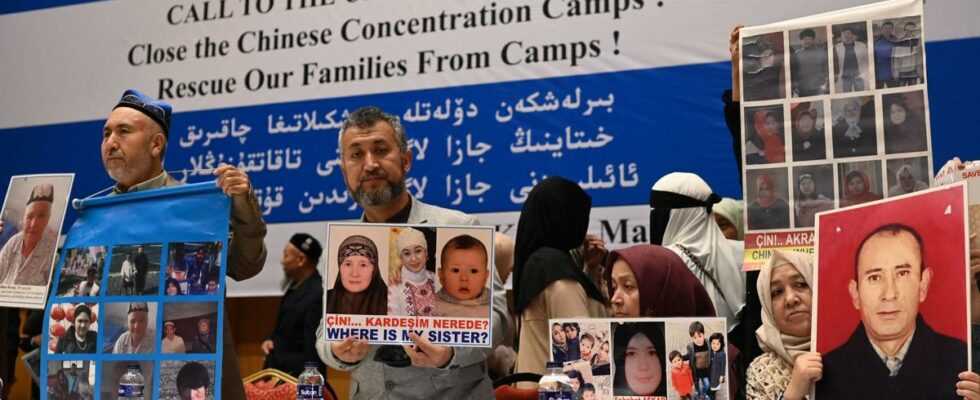German researcher Adrian Zenz received documents from an anonymous source. They are “ripping apart the veneer of Chinese propaganda,” he told the BBC.
A leak of files attributed to Chinese police, including thousands of photos of detainees including women, minors and the elderly, sheds a harsh light on the plight of Uyghur Muslims in Xinjiang.
Read alsoUyghurs: new “Xinjiang papers” confirm Xi Jinping’s role in the crackdown
These documents are published Tuesday, May 24 by a group of 14 international media, including The world , as the UN High Commissioner for Human Rights, Michelle Bachelet, begins a much-anticipated visit to this vast region of northwest China. They were handed over by an anonymous source to German researcher Adrian Zenz, the first to accuse the Chinese regime in 2018 of having interned more than a million Uyghurs in political re-education centers.
SEE ALSO – China: arbitrary detention, ill-treatment… The UN is concerned about a report on the Uyghurs
Beijing has always denied this figure, denouncing “the lie of the centuryand claiming that these sites are in fact “vocational training centersintended to deradicalize people tempted by Islamism or separatism, after a series of attacks which bloodied the region. But the documents published on Tuesday tend to prove that the presence of “internsin these centers is not intentional. They “tear apart the veneer of Chinese propaganda“, Adrian Zenz told the BBC.
The United States on Tuesday expressed outrage at the new revelations, saying it showed the acts were likely condoned at the highest levels in Beijing. “We are appalled by this shocking information and imagesState Department spokesman Ned Price said of the leaked files attributed to Chinese police. “It seems very hard to imagine that systematic action to suppress, imprison, wage a campaign of genocide and crimes against humanity without the blessing – or approval – of the highest levels of government. of the People’s Republic of China“, did he declare.
Kill those who try to escape
More than 2,800 mugshots of detainees include that of Zeytunigul Ablehet, a 17-year-old girl arrested for listening to a banned speech, and 16-year-old Bilal Qasim, apparently convicted for his connections to other prisoners. A haggard and emaciated woman named Anihan Hamit, 73 at the time of her arrest, is the oldest on the list. Another image shows baton-wielding guards restraining a chained prisoner. Written documents support the idea of an orderly repression from the top of the Chinese state.
Read alsoClaude Meyer: “China is gripped by a religious fever”
A speech attributed to Minister of Police Zhao Kezhi in 2018 explains that President Xi Jinping ordered the expansion of detention centers. According to Zhao Kezhi, at least two million people in southern Xinjiang are “seriously influenced by the infiltration of extremist thought“. The Uyghurs form almost the majority of the population of Xinjiang (26 million inhabitants). In a 2017 speech, Chen Quanguo, then boss of the area, ordered guards to shoot anyone who tried to escape and “closely monitor believers“.
Beijing flatly rejected Adrian Zenz’s findings. They are just “latest example of Xinjiang bashing carried out by anti-China forces“, castigated Tuesday Wang Wenbin, a spokesperson for Chinese diplomacy.
SEE ALSO – Uyghurs: Berlin asks Beijing for “explanations”
